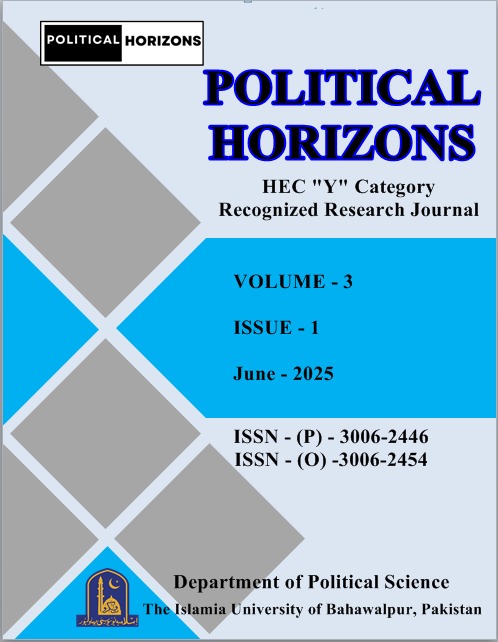Understanding China’s Growing Global Influence: Perspectives and Assessments
Abstract
From its aberration to classical Westphalian statehood features to global ascendancy, the key words such as ideational factors, identity, and normative structures, hold key to debate the growing global influence of China. The classical scholarship of modern statehood and international relations is pre-dominantly western, and it has its structural limitations to take on the key question of this research which goes as following: ‘How to understand the increasing power and influence of China in the global arena?’. So far, a conscious effort has been made to give Chinese International Relations’ scholarship an edge over the western literature as self -perception and identity politics holds key to understand the recent expansionist mood in global arena. Methodologically, the qualitative approach has been adopted to address the given question. As scholarship of international relations theories has been the key focus of the research so the key question has been first dealt in taking appraisal of causal and constitutive theories. The subsequent portion takes on the estimate of historicizing China’s Theory of International Relations. The last two sections have been focused on application of social constructivism to assess the China’s rise on global stage, and likewise the internal academic quest of China’s International Relations scholarship has been placed under the assessment to deliberate post-reformist International Relations Theory of International Relations. The research concludes on the note; that despite of its limitations still social constructivism provides a robust framework for understanding China’s foreign policy as a dynamic process of identity formation and normative adaptation, offering insights into its future trajectory in an increasingly interconnected world.
Key Words: Ideational Factors, Normative Structure, Qualitative Approach, China’s International Relations Theory, Social Constructivism.

Downloads
Published
How to Cite
Issue
Section
License
Copyright (c) 2025 Muhammad Jahanzeb Akmal, Dr Raja Qaiser Ahmed

This work is licensed under a Creative Commons Attribution-NonCommercial 4.0 International License.




